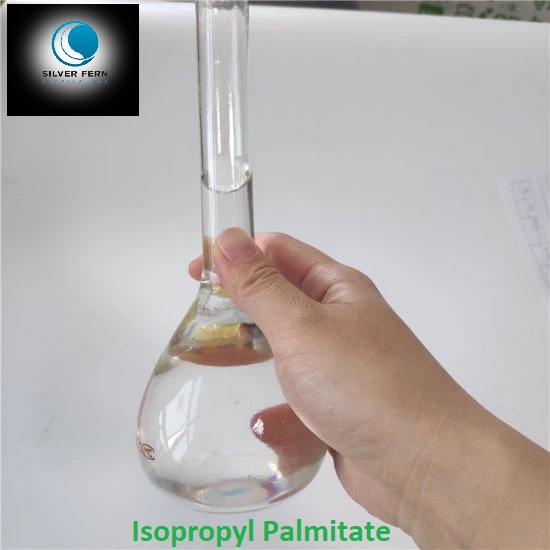“Is this product safe?”
That’s a question you’re probably always asked, especially if you’re a beauty and personal care manufacturer. And that question has likely been asked before about isopropyl palmitate, a synthetic oil widely used in the industry.
But what about safe skin? Your clients will want details, including what it is, does and whether it’s the right choice for consumers with sensitive skin.
Table of Contents
What is Isopropyl Palmitate?
Isopropyl palmitate is a synthetic oil derived from isopropyl alcohol and palmitic acid, a saturated fatty acid naturally found in animal and vegetable fats. While its name might sound a bit scary, it’s a common ingredient widely regarded as safe. It’s used in various beauty and personal care products as an emollient, softening and smoothing the skin’s surface to feel moisturized and supple. It’s also used as a solvent, which helps dissolve other ingredients in a product.
Benefits of Isopropyl Palmitate
Isopropyl palmitate is a popular ingredient in many beauty and personal care products because of its numerous benefits, including:
- Moisturization: It acts as an emollient, which helps hydrate and soften the skin, making it popular in lotions and creams. It makes these products feel richer and more luxurious.
- Absorption: It’s quickly absorbed into the skin, making it a key ingredient in sunscreens and other topical products. It helps products feel lighter and less sticky or greasy on the skin.
- Texture: Isopropyl palmitate gives products a smoother texture, which makes them easier to apply and enhances their overall feel. That keeps skincare from feeling gritty or separating in containers or on the skin.
So, is Isopropyl Palmitate Safe for Sensitive Skin?
Like most chemical ingredients in skincare, it’s impossible to definitively say whether isopropyl palmitate will always be safe for every skin type. It has been shown to be an irritant in some cases, so those with especially sensitive skin may do well to avoid products with the ingredient included. That’s especially true of products used on the face and around sensitive areas like the lips or near the eyes.
However, the ingredient is also considered safe – it’s used in so many products that many people already use without realizing it. In many cases, even those with sensitive skin can tolerate it if it’s not applied directly to the skin in its pure form.
Consider Your Consumers
Isopropyl palmitate is a common ingredient in many beauty and personal care products. While it offers numerous benefits, including moisturizing and absorption properties, it may cause minor irritation for sensitive skin.
Consider your consumer base when determining whether you should use isopropyl palmitate in these products. If you serve communities where skin sensitivity is a concern, speak to your chemical distributor about what alternative ingredients you can access. Suppose your demographic is less prone to sensitivity. In that case, however, you will likely find that smaller amounts of this ingredient do not cause irritation – and are safe to use in your finished products.

